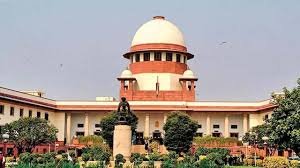By Our Legal Corresondent
New Delhi: A Special Bench of the Supreme Court on Oct 18 recalled its August 23, 2022 judgment which declared provisions and amendments made in the benami property law “unconstitutional and manifestly arbitrary”. The Bench, headed by Chief Justice of India D Y Chandrachud referred the case for fresh adjudication.
The amendments, introduced in 2016, had applied retrospectively and could send a person to prison for three years. They empowered the Centre to confiscate “any property” subject to a benami transaction The decision to recall and have a re-look at the issue was based on review petitions filed by the Union government and Deputy Commissioner of Income Tax (Benami Prohibition). The government was represented by Solicitor-General Tushar Mehta.
Mr Mehta said the short legal question raised was whether the Prohibition of Benami Property Transaction Act, 1988 as amended by the Benami Transactions(Prohibition) Amendment Act of 2016, had a prospective effect
However, the 2022 judgment traversed beyond the ambit of the question raised, to declare Section 3(2) of the unamended 1988 Act “unconstitutional for being manifestly arbitrary”. The verdict under question had found Section 3 (2)n of the 2016 Act as violating Article 20 (10 of the Constitution, which prohibits retrospective punishment.
The Review Bench on Oct 18 said the parties were free to argue on constitutionality of the benami law provisions before the appropriate Bench. The court made it clear that the arguments which led to the 2022 verdict had not squarely addressed the issue of the constitutional validity of Sections 3(2) and 5. “It is trite law that a challenge to the constitutional validity of statutory provisions cannot be adjudicated upon in the absence of a live lis (legal action) and contest between the parties. In the present case, the constitutional validity was not squarely addressed. We accordingly allow the review petition and recall the judgment”, the Review Bench record in its short order which restored the case back on the Court’s board.




